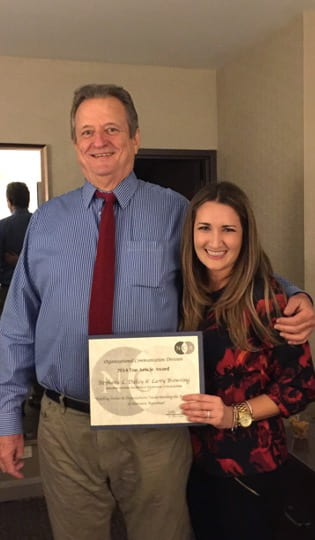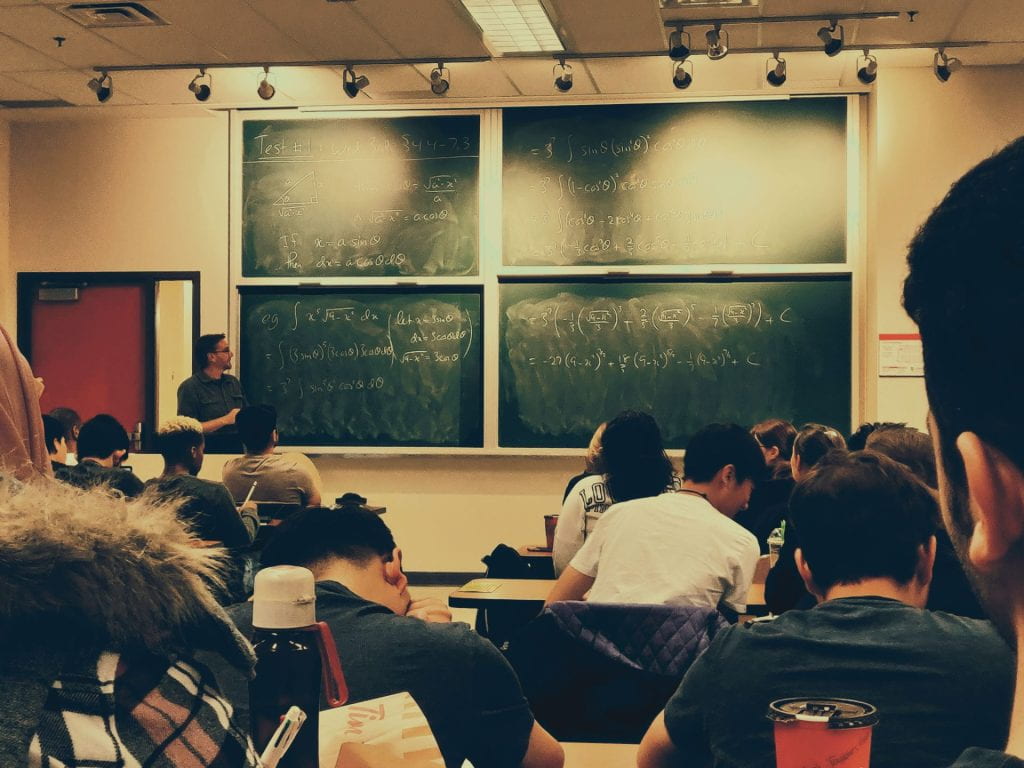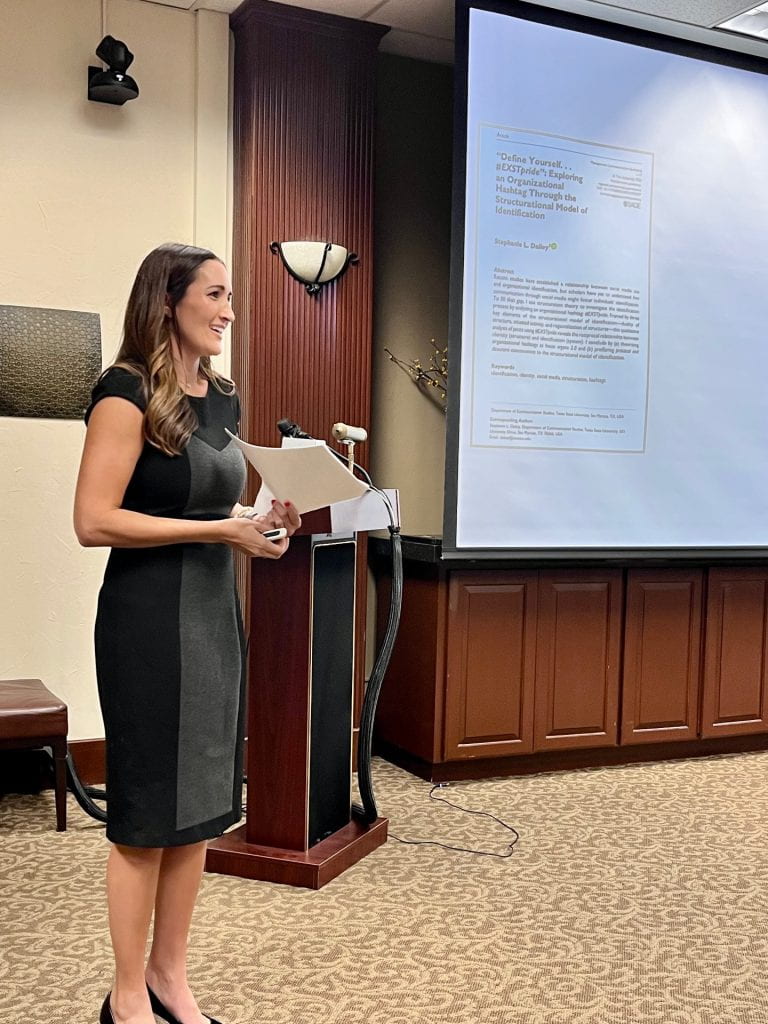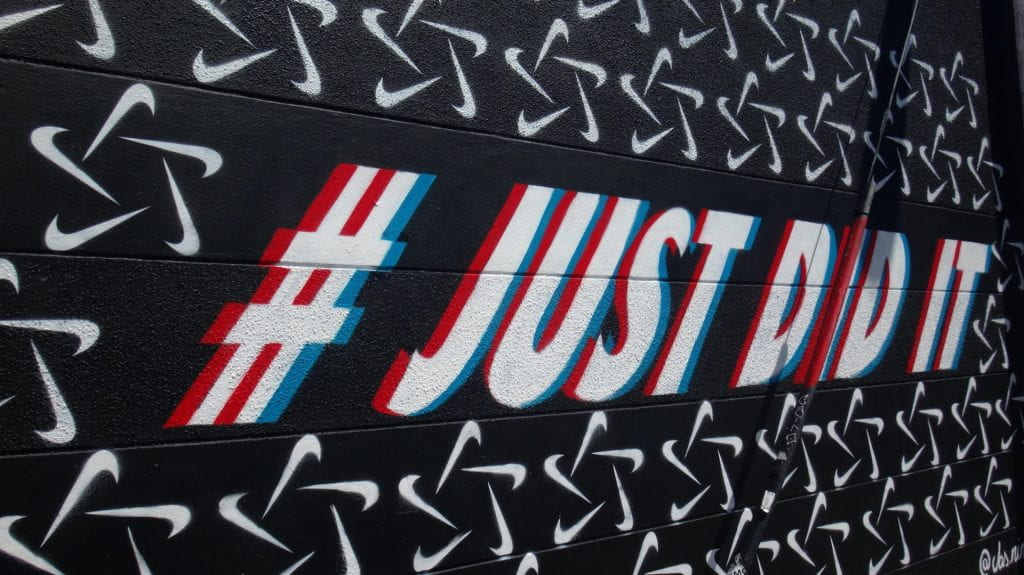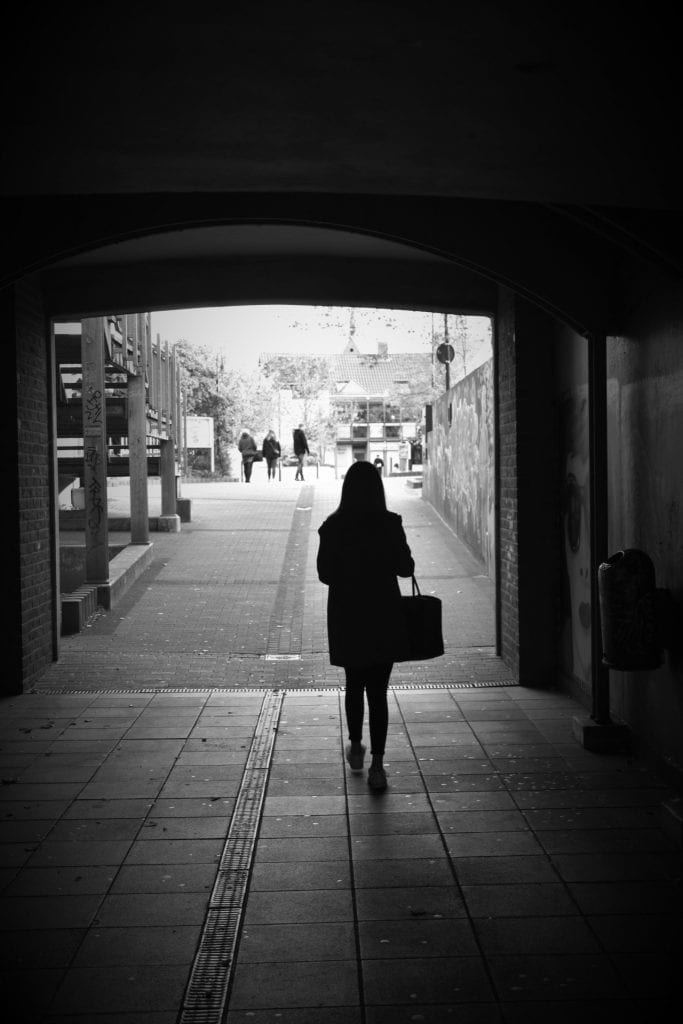It’s hard to believe it’s been ten years since Dr. Larry Browning and I published our Academy of Management article on narrative repetition, which won an article of the year award (pictured below) in 2014. Needless to say, it was about time that we collaborated again. I’m proud to share that we’ve authored a chapter about Narrative Analysis–along with Jan-Oddvar Sørnes–in the The Sage Handbook of Qualitative Research in Organizational Communication, edited by Boris Brummans, Bryan C. Taylor, and Anu Sivunen. This groundbreaking handbook provides readers a guide through qualitative research in the field of organizational communication. I’m eager to read all of the contributions, and I feel honored to be a contributing author to such an impressive handbook.
Article Published in the Journal of Workplace Behavioral Health
Whether you’re a faculty member or someone interested in mental health in the workplace, I hope you’ll read my latest publication in the Journal of Workplace Behavioral Health, focusing on compassion fatigue in higher education.
Article Published in the Journal of College Orientation, Transition, and Retention
This research explored the experiences of first generation college students (FGCS), seeking to understand how FGCS’s academic and social expectations might be violated during their transition to college. Our mixed-methods data elucidated various positive and negative violations, as well as effects of these violations, including academic adjustment and engagement. Hope the manuscript meets your expectations 😉
Article Published in Management Communication Quarterly
I’ve published one of my favorite studies of my career 🙂 This piece builds on the concept of identity gaps from the communication theory of identity (CTI), and explores how employees experience and manage occupational identity gaps. Curious what people do when they work in careers that don’t align with their sense of self? Find out by reading this article!
Dean’s Seminar Recipient
Research Grant Award
I’m excited to have won one of Texas State’s internal research grants for a project exploring how childcare apps affect working parents’ well-being. I’ve been struck recently by employees’ record-breaking levels of stress, triggering the “burnout epidemic” and the “great resignation.” As a parent, I know many of us have been particularly struggling, as blurred boundaries between work and home increase interruptions from family members and caregivers. This project will investigate childcare apps (e.g., HiMama, Brightwheel) and parent-teacher communication apps (e.g., ClassDojo, Seesaw), which inundate working parents with messages throughout the workday, with notifications, pictures, and questions. Daycares and schools ubiquitously adopt these social technologies, but there is little to no academic research on their effects. Over the next year, I’m excited to work on this project, which will seek to understand how features and uses of childcare apps—the content, frequency of messages, etc.—play a role in working parents’ ability to compartmentalize responsibilities, manage multiple identities, and cognitively function at work. Stay tuned 🙂
Article Published in Management Communication Quarterly
This most recent article explores the process of organizational identification by analyzing an organizational hashtag, a hashtag created by organizational stakeholders for a specific purpose. Through a qualitative analysis of the hashtag #EXSTpride, I show how organizational hashtags produce and reflect identity and identification. I hope you enjoy the manuscript!
On Sabbatical
I am grateful to have received one of the ten Presidential Research Awards established by Texas State University’s President Trauth to fund my sabbatical for the full academic year (2021-2022). During my faculty development leave, I’m continuing research projects, applying for external funding, and working on a scholarly book.
Article Published in the International Journal of Human-Computer Interaction
Many of us make upward social comparisons on social media — comparing ourselves to others who we believe are faring better than we are. We might think, “She’s prettier than I am,” “Her job seems more glamorous than mine,” or “He drives a nicer car than me.” Our research team was interested in identifying individuals who frequently make upward social comparisons and determining which online behaviors and psychological characteristics are most predictive of these individuals. In this study, we explain key factors related to high upward social comparisons: those with low quality of life, low perceived social support, high in fear of missing out, high levels of social media addiction, frequent censorship to avoid judgment, and feelings of safety while using social media. If you are interested in social-media use and mental health, I encourage you to give it a read!
Article Published in the Journal of Gay & Lesbian Social Services
Our team studying social media and mental well-being published a new article in the Journal of Gay & Lesbian Social Services. In this study, we show how sexual minority status predicts intent-to-quit, even after considering psychological and occupational factors. We hope you’ll read our work, here, if you are interested.

